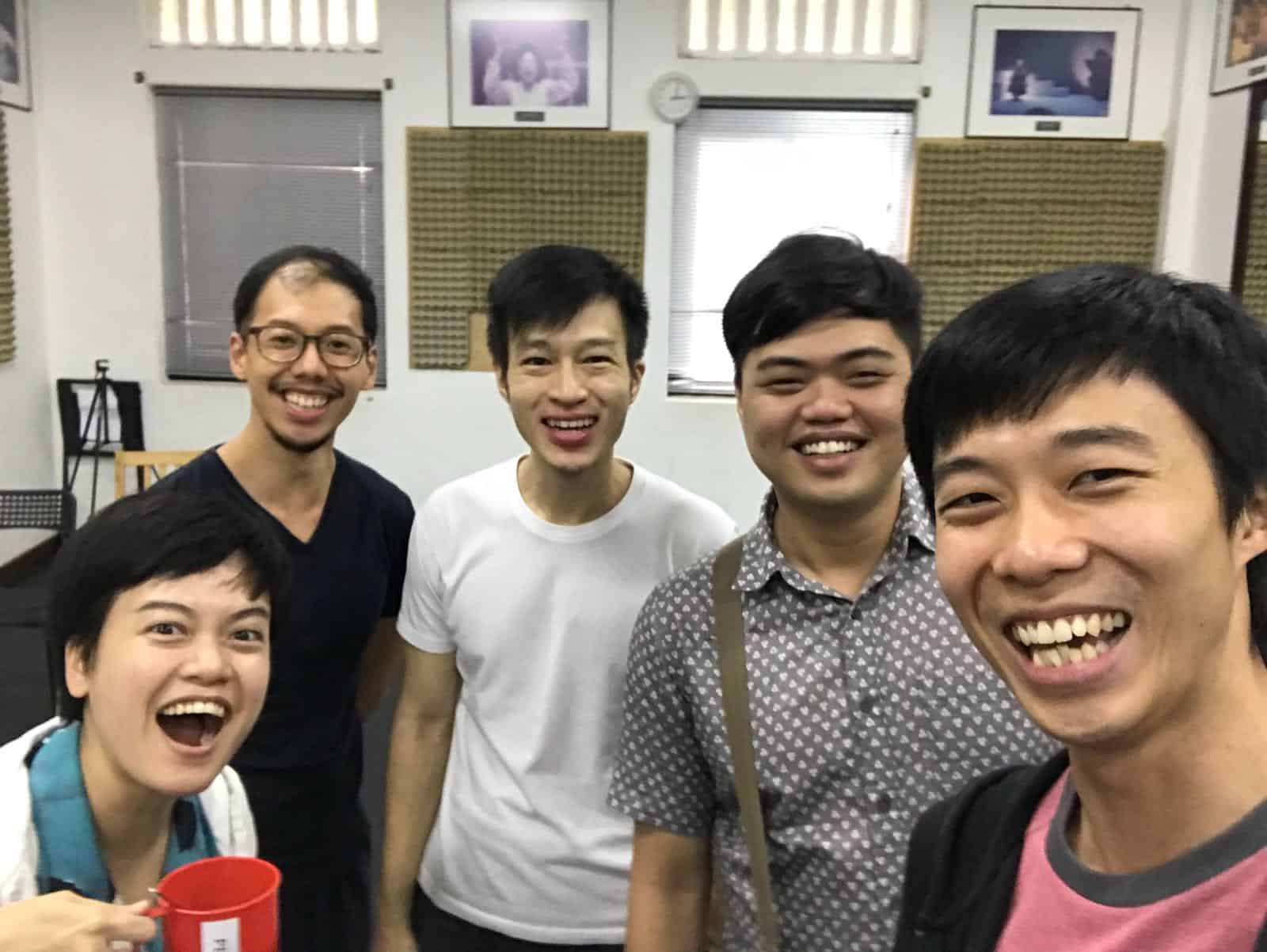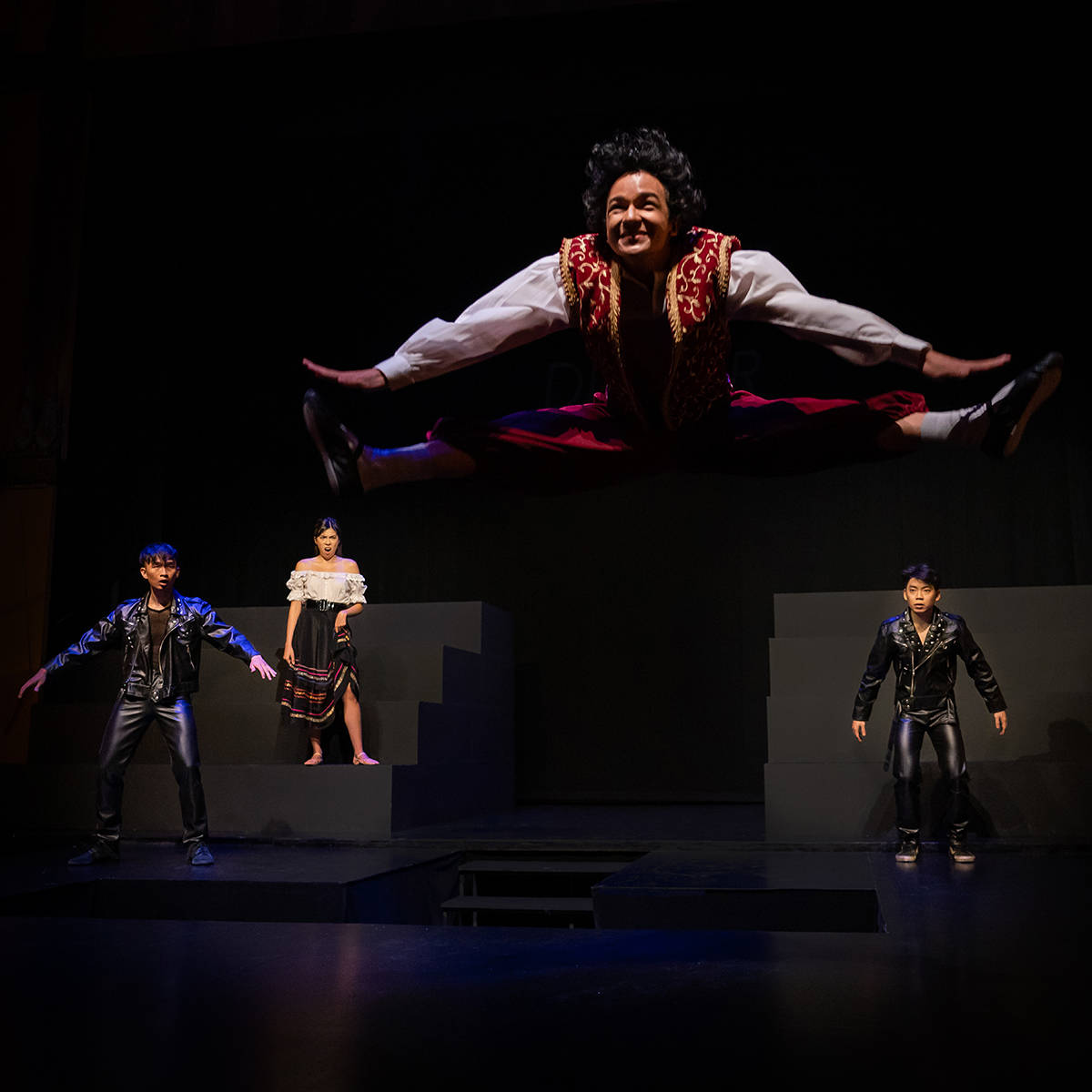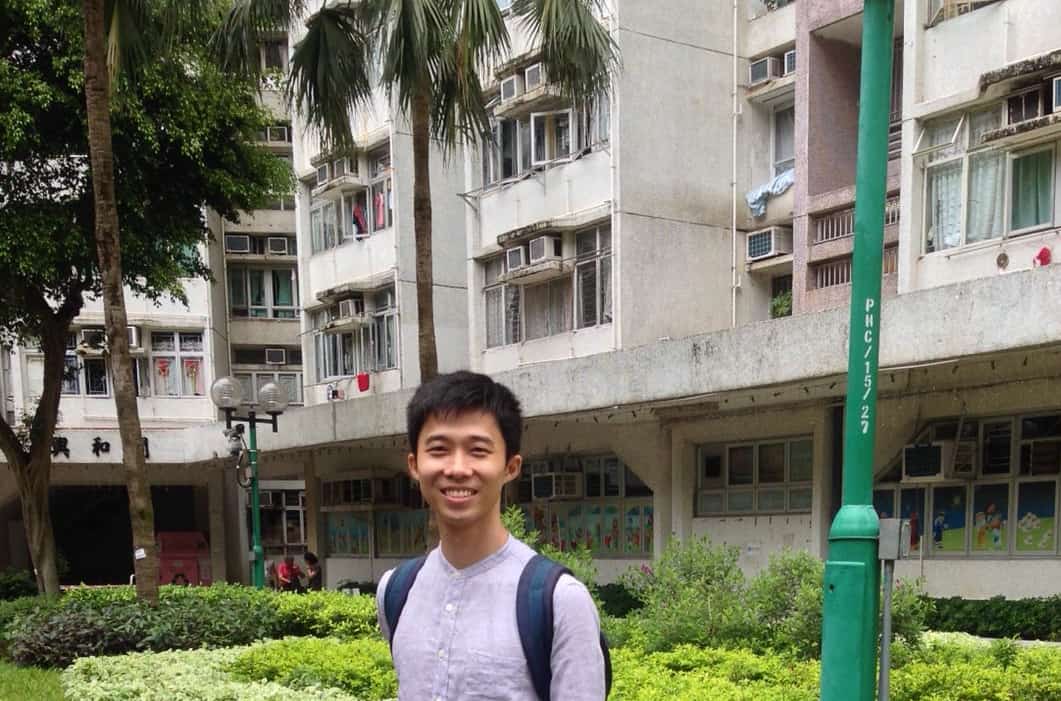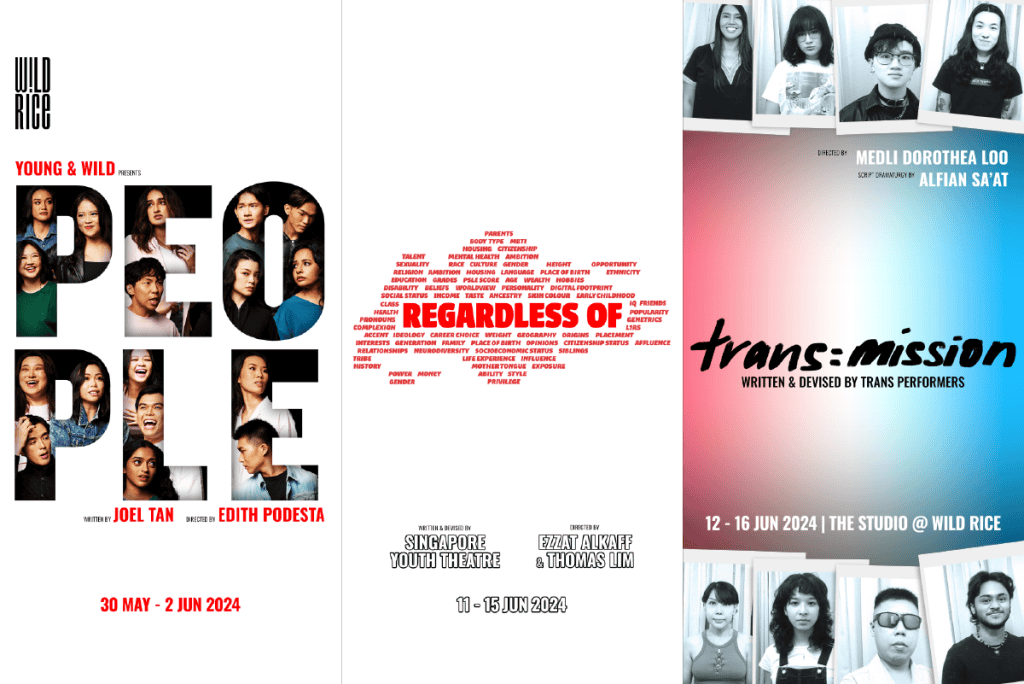By: Neo Hai Bin (originally written in Mandarin)
Translated By: Shawne Wang
In 2016, Chong Woon Yong invited me to collaborate on a new play with him. He wanted this play to examine the notion of masculinity. My interest was definitely piqued by our discussions.
We spent eight months working on the script. Ultimately, we performed our new play on a very small scale. At the same time, we sought the opinions of industry veterans and professionals. Fast-forward one year, and I’ve tidied up the script, refined the structure of the play, and re-examined the narrative and character dynamics in the play. What I finally wound up with is 招:When The Cold Wind Blows.
It takes such a long time to create a play. I frequently think to myself: who would do this? Only those who are lunatics… or those who feel, somewhere deep in their hearts, that there is a story they have to tell.
For this script, we did massive amounts of research. We produced no less than 20 drafts and created many, many characters along the way. As a result, we had to be willing to let go of some fascinating characters and narrative twists. Throughout the writing process, I had to repeatedly and mercilessly ask myself: what exactly are we trying to say?
In the end, this constant self-interrogation actually became the play’s structure: a man continually falls into the same dream, in which he is repeatedly subject to interrogation from another man. Every time, he wakes in a haze of fear and shock. What are these men hiding, and what are they afraid of? What makes it so difficult for them to actually talk about what really happened?

(L-R) Thong Pei Qin (director), Joel Low, Joshua Lim (performers), Chong Woon Yong (collaborator) and Neo Hai Bin (playwright)
When I was finalising the script, I came to realise that I had unconsciously drifted away from Woon Yong’s initial brief: ‘Let’s examine the issue of masculinity’. There’s no denying that this play is written by a man; that all its characters are men; and that the storyline is tied up with Singapore’s National Service – masculinity is everywhere in the play.
But I have gradually come to care for the characters, ‘Xavier’ and ‘Man’, in a way that’s simply human. In certain difficult situations, humanity itself will become twisted: from school violence in Japan, the Stanford Prison Experiment and the discrimination and prejudice in 1960s America that’s examined in the documentary, A Class Divided; to the aftermath of the Cultural Revolution. When the line between good and evil begins to blur, and people start to waver – how do we find solid ground again?
Once, in Ho Chi Minh’s War Remnants Museum, I saw a photograph of a group of soldiers and two beheaded corpses. In that photograph, the soldiers stood next to the corpses, brilliant smiles on their faces.
Ever since then, those headless corpses have become part of my nightmares, because I couldn’t believe that humanity could become that twisted. I thought: surely they could not have been sadistic soldiers from the moment they were born? What made them who they had become? In similar circumstances, could I have become one of those soldiers myself?
After a recent reading of When The Cold Wind Blows, playwright Thomas Lim said: the situation you’re in could hand you a gun, but whether or not you pull the trigger – that’s ultimately still your decision. I very much agree with that. Aren’t all human tragedies just a series of choices made in difficult situations? Because of one decision he made, ‘Xavier’ will never be able to escape his nightmares. In our heart of hearts, perhaps all of us have a ‘Xavier’ – and, perhaps, learning how to recognise one’s own fears is something every one of us needs to learn.
Good and evil, good people and bad people – none of it is set in stone. The differences could just be a momentary lapse in judgement. I have innumerable words to describe the two years I’ve spent writing this play, but perhaps it comes down to just three: 善护念 (Shan Hu Nian)*.
* In Buddhist philosophy, 善护念 (Shan Hu Nian) refers to continuously cultivating your thoughts and impulses towards the good and virtuous.
招:When The Cold Wind Blows plays at the Singapore Theatre Festival as part of a double-bill from 12 to 15 July 2018. Visit www.singaporetheatrefestival.com for more information!
起心即妄 — 《招:When The Cold Wind Blows》
一名服役的男子;一张无法磨灭的照片;一场场挥之不去的梦魇。梁海彬通过《招:When The Cold Wind Blows》,和我们分享他的创作灵感,以及创作过程中令他不安的恐惧。
2016年,张文杨邀我一起写剧本。他希望探讨男性议题,我听他说了之后,也起了兴趣。
我们花了8个月的时间,把剧本写出来,最后以小演出的形式演绎出我们的剧本,也索取好一些资深剧场工作者们的意见。一年后,我再整理剧本、调整剧本架构、重新处理戏剧情节和人物关系…… 终于成了现在的版本:“招:When The Cold Wind Blows”。
这么长的时间,就为了写出一个剧本。我常常想,我们要不就是疯子,要不就是心里头有太深切的触动,让我们无论如何都必须说出这个故事。
为了剧本,我们做了大量的资料搜查,写了不下于二十余篇草稿,塑造了许多许多的人物,当然也因此必须舍弃许多有趣好玩的人物与情节。过程中我更不断地反复反问,严厉不留情地拷问自己:我们到底要说什么?
结果这也竟然成了这部戏的形式:一个男人不断坠入同一个梦,被迫接受另一个男人的审问,每一次都在惊恐中吓醒过来…… 他们在隐藏什么、在害怕什么?什么事如此难以启齿?
为剧本做最后的处理时,我渐渐发现,我已经在不知不觉中脱离了文杨最初所说的“让我们探讨男性议题”。无可否认,这是一篇由男人写的剧本、剧中角色都是男人、故事情节还是对国民服役的想象—— 男性元素无处不在。但是我对剧中 Xavier 和 Man 的关怀与情感,慢慢变成了对“人”的关切。在一些困境之中,人性会扭曲:日本的校园的暴力事件、斯坦福监狱实验、60年代美国《分裂的一班》(A Class Divided)纪录片里的实验、文革的大批判等等…… 善与恶开始模糊,人开始摇摆,我们如何定位?
我曾经在越南胡志明市的战争犯罪博物馆(War Remnants Museum)看过一张照片:一群军人和两个断头的尸体合照。照片中军人们在尸体旁边笑得很灿烂。
断头的尸体从此成了我的噩梦,因为我从来没想过人性可以如此扭曲。我想,他们肯定不是从一出生起就是变态的军人吧?是什么让他们变成这样?处在同样的情势之下,我会不会也和那些军人们一样?
编剧 Thomas Lim 听了剧本演读后,说道:情势可以给你一把枪,但是扣不扣板,始终是你自己的选择。我很同意,虽然人类的悲剧,不都是一个又一个的身不由己吗。Xavier 为了自己的决定,从此逃不出做噩梦的命运—— 我们人人心中或许都有一个Xavier,而学习如何认识自己的恐惧,也许是我们每一个人必修的人生功课。
善与恶、好人与坏人,并不是绝对的。其中分别,不过就是心中一念之差而已。“善护念”—— 啊,两年写一个剧本,千言万语,要说的,也许就只是那么三个字而已。
























